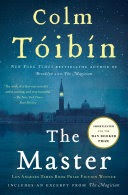- Gail Wilson Kenna
- Sep 15
- 2 min read
I’m writing in bed this early Sunday morning, lightly holding a skinny Le Pen between my thumb and index finger. My right hand is cramped, though less a claw than when I awakened. Ah, modern life, when maladies become acronyms. CTS. Three letters for Carpal Tunnel Syndrome, instead of three words and twenty letters. And CTS is why I am not going to open my computer to check if Tóibín’s Brooklyn was an Oprah book club selection, the way Long Island was in 2024. The Scribner hardcover beside me has Oprah’s book club circle on it. I
borrowed this $28.00 dollar copy and have kept my pen from it. My paperback copy of Brooklyn is long gone.


I do think the reading public can expect a third novel with Tóibín’s character, Eiles Lacey. The time frames of the first two fictional works are 1956 and 1976. Might a third novel also be set in 1976, given Long Island’s ending? Which is with Eiles and her two adolescent children heading home from Ireland to an Italian cul-de-sac on Long Island. This is where Tony, the husband and father lives, along with his extended Italian family, in houses built there in the late 1950s. Two decades, in other words, of being together. Now a big surprise is about to arrive in the form of an illegitimate child, one Tony fathered while on a plumbing job. Eiles has said, “No baby in this house,” and made her exit to Ireland, initially alone. The return home is for her mother’s 80th birthday, though there has been no return to Ireland for two decades.
As I stare at the Irish name, Eiles, I hear in my head, Eye-less, with an accent at the end. For the sake of what I write today, this pronunciation fits the character. In Brooklyn, I felt sympathy for this young woman’s lessened state. It was not her choice to leave the Irish village of Enniscorthy for New York. Her mother and older sister made the decision for her. Then when Eiles returned home for her sister’s funeral, no one knows that she is married. During this visit home, she falls in love with Jim, who is more attracted to her now that she’s been to America and been enlarged from the experience. Village life, secrets and lies, and everyone knowing everything about everyone else. Eiles leaves a second time and does not come back until twenty years later.
The truth is I found the novel tahsome, as Virginia Woolf pronounced the word. Yes, it’s clever how Tóibín works it all out, with twists and turns, involving family & lovers, the sea, things like a ring, telephone booths, the annoying Matriarch, unmarried Jim, the indominable Nancy and her determination to marry Jim. Yet Tony’s infidelity and the expectant child, welcome in the cul-de-sac of Italian Catholics, felt oddly contrived. But that’s also why a third novel with the family will be coming our way. Having read The Magician three times, Long Island for me was a one-time read.
Next week: Leo Tolstoy’s 552 page Resurrection, recently published by Everyman’s Library.

















